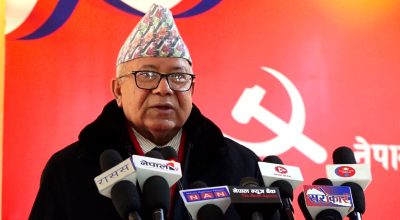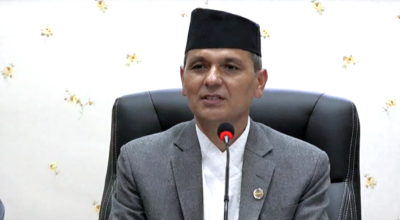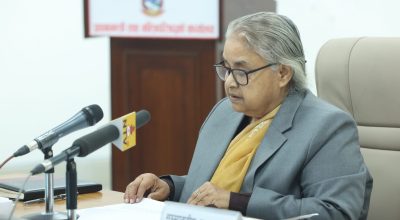
US establishment has been giving immense efforts, time and activities to tie up strong connectivity with the Southeast Asia. US wants that Southeast Asian nations should follow its guidance, make strong relations with it and ignore China and Russia on the areas of imperative regional and global issues. History shows that US has no particular contribution on the peace and prosperity of the Southeast Asia. Now time has come for Southeast Asian nations to rethink on US policy and play balanced role for lasting peace and prosperity and earn trust from major powers.
With the overwhelming influence of US, there are countries in Southeast Asia that want to pursue its friendlier stance and make better ties with America. Due to this reality, it was proven that some Southeast Asian nations had absolutely no effective contribution on peace and prosperity in their region. Thus, it is time for each country to take a moral stand and think over their national interests before accepting or rejecting any foreign policy recommendations from the US establishment.
The US drive for strong ties in Southeast Asia is aimed at establishing Indonesia, Vietnam, Singapore and Philippines as its strategic partners in the region. The US is trying to use parochial economic and military interests to create a platform for its influence in South-East Asian countries which have become strategic hubs for regional power politics. Some Western experts assume that US will be provided with a deeper economic, security and political-military presence in Southeast Asia to compensate for the decline of US power growth and the rise of the other power players.
The US presence in Southeast Asia is undermining the commitment of Southeast Asian nations to maintain peace and stability in the region. Since US establishment is pursuing a policy of globalization and free trade, in another side, it is working hard to bypass major powers and take unnecessary advantages in the region as per its national interests. Americans have been entangled with this region for last 70 years and almost failed to contribute for peace and security situation as it committed in many occasions.
Southeast Asian nations should not forget that their security and prosperity depends on their ability to cooperate and make balance relations with all major powers. They did policy mistakes in the past blandly supporting US guidance. Actually the concept of the Southeast Asia was also articulated by US establishment to counter the influence of Soviet Union and China at the hyper time of the Cold war. But unfortunately, even after the Cold War, US has similar types of hegemonic and zero-sum game posture on regional and global political equations.
The previous Obama administration had tried a lot to increase its engagement with the region providing huge amount of technical and military supports. Actually, the US has been trying to establish a regional architecture hub in which the US would have a central role. The Obama administration did more for it and current Joe Biden administration showed has commitment for it. International political experts opined that such kind of US hegemonic attitude can destroy the basic norms of existing global order and liberal economic assets.
No doubt that the United States sees the ASEAN states as a key component of its so-called Indo-Pacific strategy. According to the US policy makers, the goal of this strategy is to preserve the existing liberal international order. This strategy has four main pillars: (1) maintaining a balance of power that favors the US and its allies; (2) strengthening alliances and partnerships; (3) promoting a rule-based international order; and (4) expanding economic opportunity. The ASEAN states are seen as key to the success of this strategy because of their strategic location, economic potential, and political importance.
The countries of the region remain extremely important to the United States, which has long sought to preserve stability while promoting economic growth and democratic values. The United States has many interests in Southeast Asia, including counterterrorism, maritime security, nonproliferation, human rights, and trade and investment. To pursue these interests and address the challenges posed by other powers, the United States has deepened its engagement with traditional allies and partners and expanding new methods to retain them in the favor of US interest.
The history displays that US could not give solutions at the time of major crisis. Take one example of Washington’s reaction to the Asian financial crisis of 1997.That financial problem had disturbed the great developmental efforts initiated after the Vietnam War. Starting in 1997, cash values in Thailand and Indonesia suddenly down and national development stopped in many countries. Washington, nonetheless, didn’t provide sufficient loan and other supports to the needy countries of the region. So the crisis hampered a lot on economic, financial and commercial activities of the region and also provided negative impacts on the global economy.
The United States has poured billions of dollars into the region in an attempt to maintain hegemony, yet the situation has only gotten worse. Washington has worked hard to keep its influence in the region, but it has created insecurity and instability in majority countries. Many people in the region feel that the United States is only interested in maintaining its power, and they are not happy about it.
President Biden has repeated same policy mistakes of previous administrations on Southeast Asia. His plan is to stop their cooperation with China. The reality is that these countries have more to gain economically by working with China than they do with the United States. This was evident when Biden recently visited the region and was unable to convince them to stop working with China.
The US policy has created insecurity and instable situation in many countries of the Southeast Asia. US is applying every possible strategy to maintain its hegemony in the region. This has resulted in various problems for these countries, such as economic uncertainty, political unpredictability, and military insecurity.
Ongoing economic, political and military interest and policy of the US is not only harmful for Southeast Asian countries but also other regions adjunct with them. US should realize the geo-strategic situation of the region and also cooperate with other regional powers while dealing with Southeast Asian countries. Otherwise, existing US strategy will further damage the regional stability and peace in the entire region. Southeast Asian countries need to rethink and revise their foreign policy as per the changing regional and global context.
















